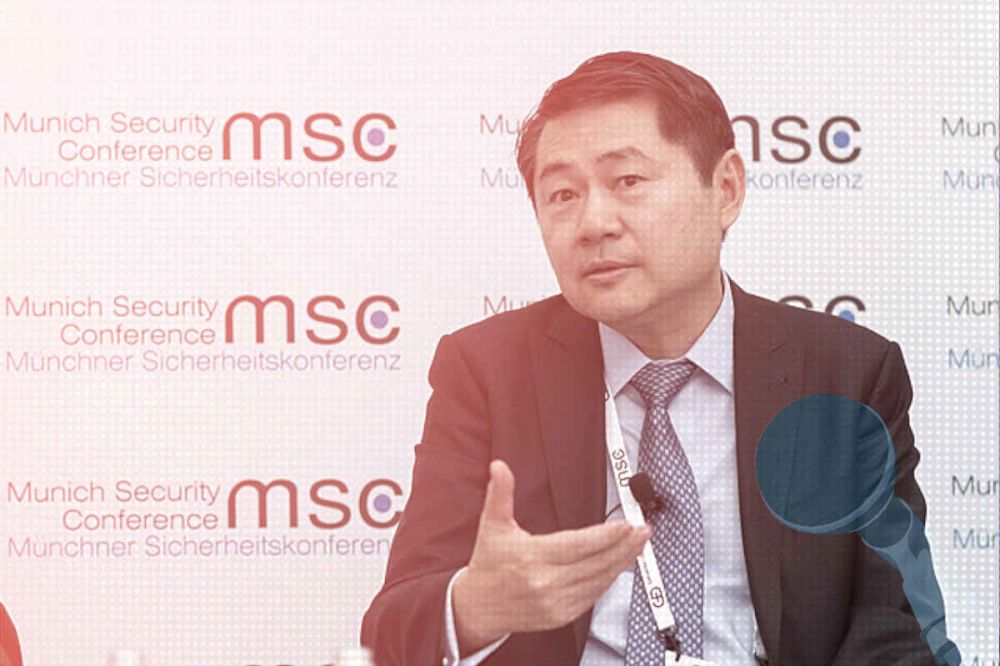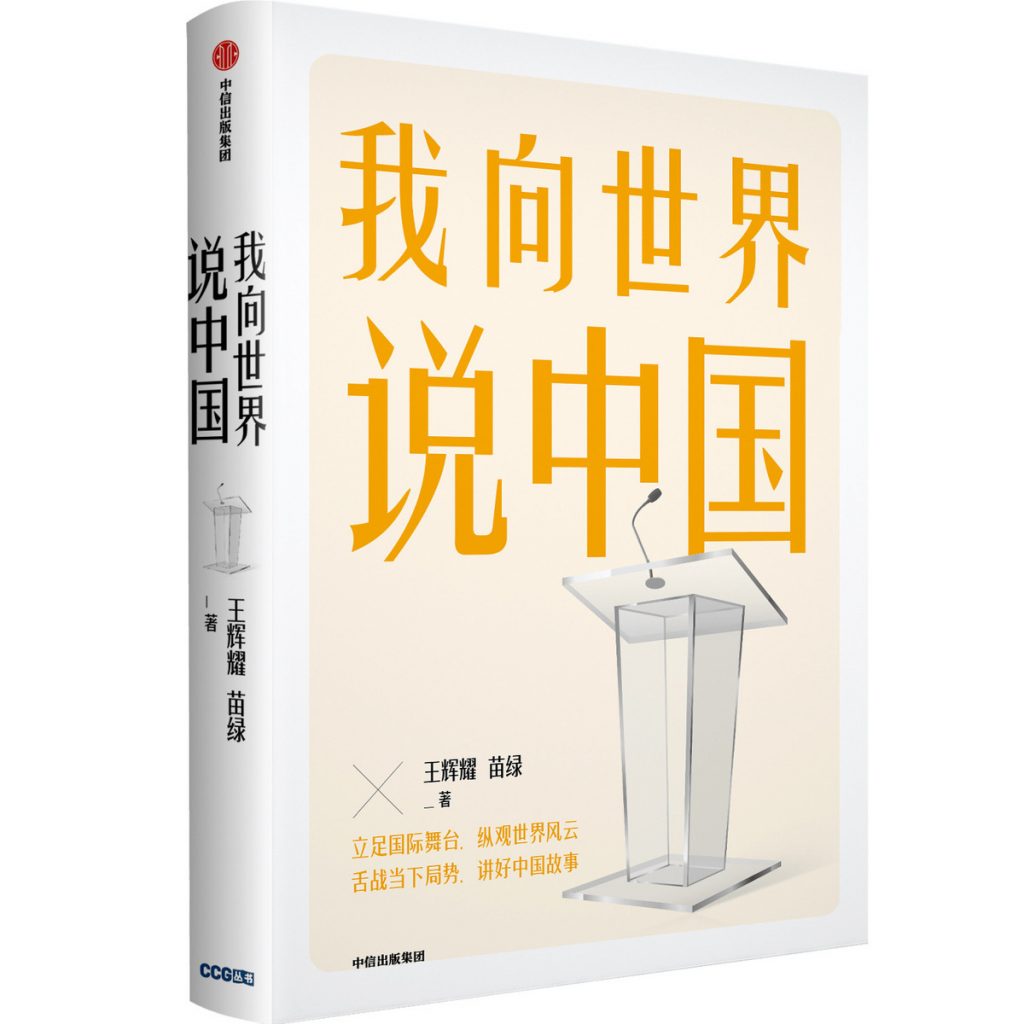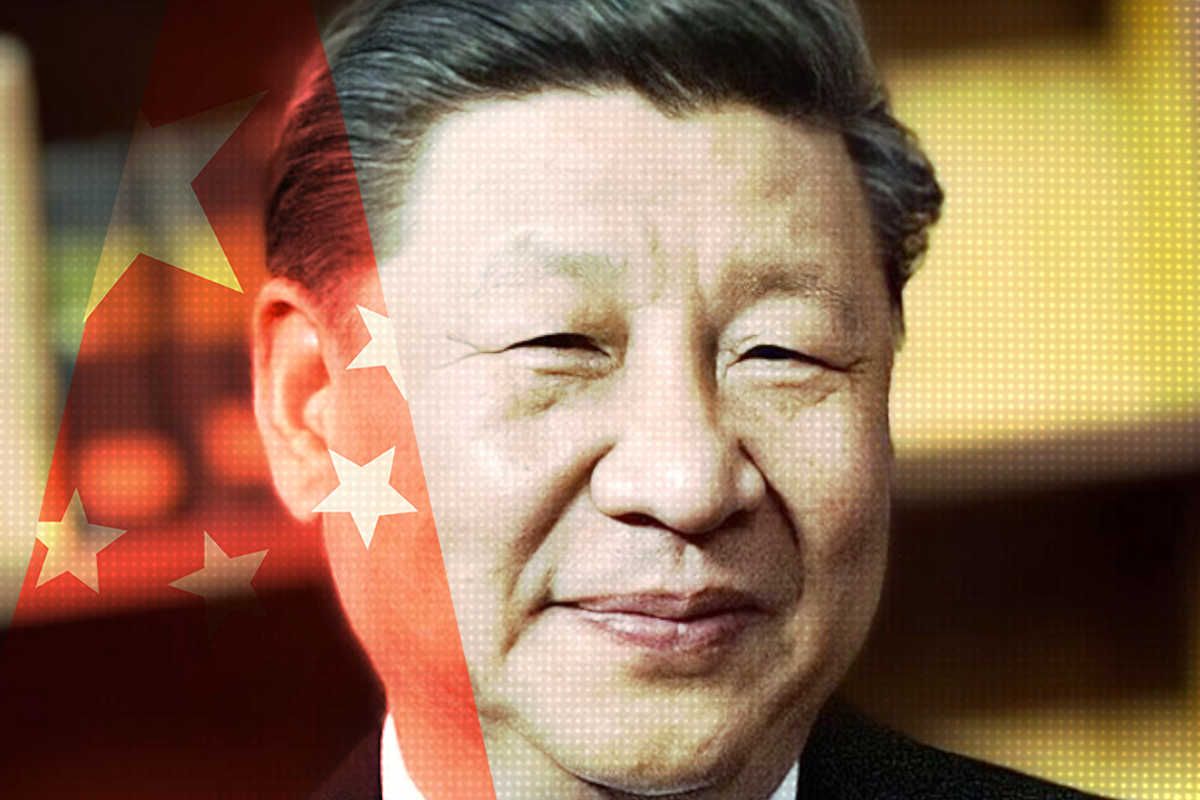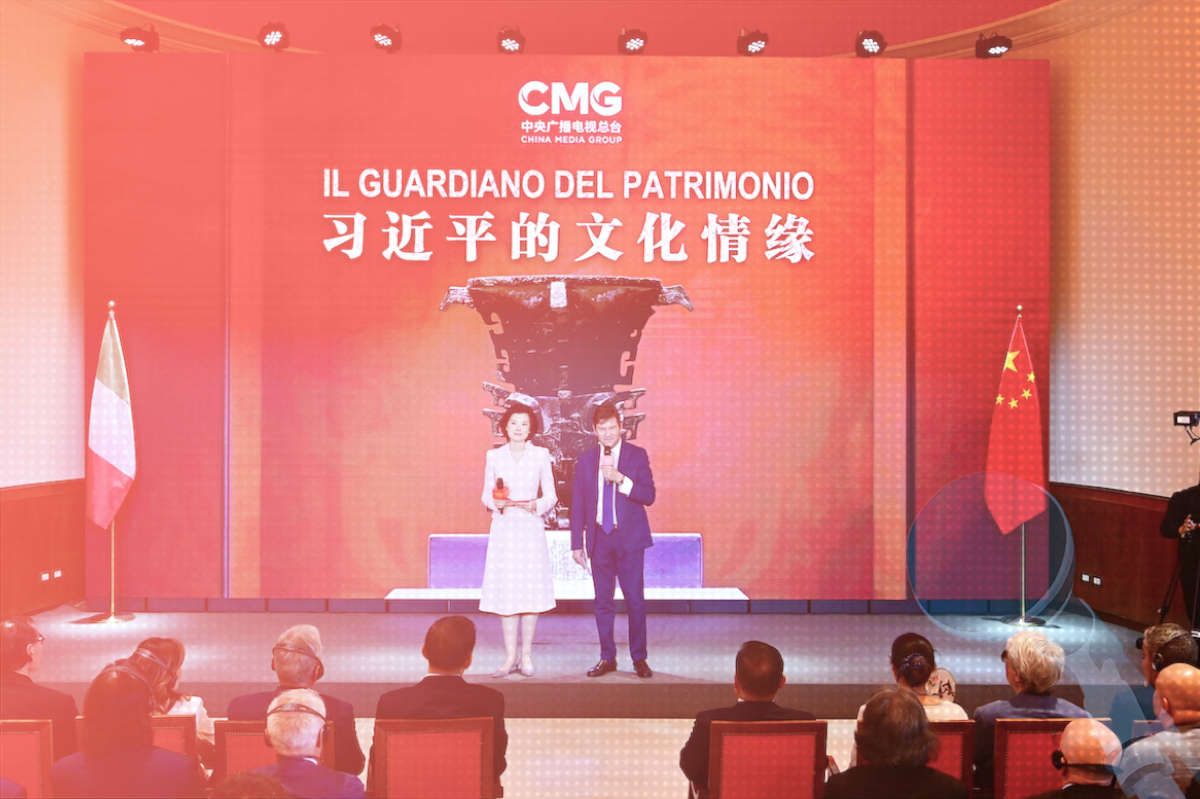Going Global
Seeking China’s New Narratives

Wang Guiyao, the founder of the Center for China and Globalization, appears at the Munich Security Conference in 2019. Image Press / MSC available under CC license at Wikimedia Commons.
Earlier this week, the Center for China and Globalization (全球化智库), which has advertised itself as a “leading non-governmental think-tank in China,” held an event in Beijing to discuss “new narratives on China” (中国新叙事), and to launch a new book on external communication called I Talk About China to the World (我向世界说中国). A summary of the event released by CCG through its official WeChat public account provides an interesting glimpse into discussions in China’s think-tank sector on what Xi Jinping has called “telling China’s story well.”
The Center for China and Globalization, often referred to as “CCG,” was founded in Beijing in 2008 by Wang Huiyao (王辉耀), an economist and State Council advisor who is currently the organization’s president, and Mabel Miao (苗绿), the current vice-president and secretary-general. They are the authors of the new CCG book, which deals with the question of “how to create new narrative methods and models” (如何打造新的叙事方式和模式) for China.

CCG has emphasized its independence, calling itself China’s “largest independent think-tank.” The group’s claim to independence has frequently invited skepticism, and many sources have noted in particular Wang Huiyao’s apparent association with the United Front Work Department (UFWD), which became a point of controversy in 2018 as he was dropped from the list of participants in a Wilson Center event, and his strong Party affiliations. CCG’s rebuttal in 2018 of an article in Foreign Policy highlighting his United Front ties is well worth a read for its discussion of the registration requirements facing civil society organizations and think-tanks.
Setting aside such thorny questions of affiliation and independence, what can we glean in terms of substance from the recent CCG event on external communication? The discussion, in fact, so far as can be ascertained from the summary posted to CCG’s official WeChat public account, was more nuanced than many official writings on “telling China’s story,” external propaganda, soft power and so on, including discussion of the failures and shortcomings of efforts to now. The following is a summary of the views offered by just four of the speakers present at the CCG event
Chu Yin (储殷)
Professor, University of International Relations (UIR)
Chu says that “telling China’s story well” has passed through three different development stages, from the 1) “survival in the cracks” (夹缝求生) stage, during which China tried to convey its own voice within a discourse system dominated by the West; to the 2) “Belt and Road” (一带一路) phase, focusing on BRI as a medium for promoting the “going out” (出海) of Chinese culture in order to foster greater recognition of China’s culture and values in different countries around the world; to the 3) current phase in which the government is leading various aspects of society (社会各界) in building a “great outreach structure” (构建新时代下的大外宣格局) – which could alternatively be translated as a “great external propaganda structure.” Through this process, said Chu, one could witness China steadily raising its international communication capacity (国际传播能力), adjusting its avenues of communication (调整传播路径) to suit changing circumstances, and working to create a comprehensive (全方位), broad (宽领域) and multi-layered (多层次) external propaganda structure (外宣格局).
Chu’s criticism of China’s external communication efforts to date is actually refreshing within the often oxygen-deprived atmosphere of external propaganda talk, which can often focus on repetition of official-speak at the top, concerned more with signaling loyalty to the leadership than grappling realistically with the outside world. At present, says Chu, China must be wary in its international communication efforts of the “trap” (陷阱) of “mirroring internal propaganda in external propaganda” (外宣内宣化), meaning that there is little differentiation between messaging for China’s domestic audience and messaging for global audiences. This, indeed, is an endemic problem for China’s political system and for its Party-centered media culture, which often in practice emphasize “political discipline” and maintaining official lines over flexible and strategic thinking – so that the real audience reflexively becomes the CCP itself.
Chu does not, at least in least in the CCG summary, address these deeper institutional and political pitfalls, but he does says that China must “place a high emphasis on the communication environment and context,” as well as on the formats and rules of communication overseas.
Chu identifies the following three “communication predicaments” (传播困境) resulting from “mirroring internal propaganda in external propaganda,” as follows: 1) Such messaging “increases discourse conflict and cultural misinterpretation” (增加话语冲突和文化误读); 2) Such messaging “reduces the professionalism of the Chinese narrative, resulting in an inability to properly convey China’s meaning” (降低了中国叙事的专业性,导致无法正确传递中国的意思表示); 3) In the internet era, characterized by “impetuousness” (浮躁的气息), attempts to promote a positive image of China can often “backfire” (反噬).
One good example (mine, not Chu’s) of this third predicament can be seen in the backlash in the Philippine’s in April 2020 to a Chinese-produced music video promoting friendship between the two countries and praising frontline workers during the pandemic. The video, with lyrics written by the Chinese ambassador, met with scorn from hundreds of thousands of Filipinos (212,000 dislikes against just 3,700 likes), who focused instead on sensitive territorial issues between the two countries in the West Philippine Sea.
Finally, Chu praised CCG’s I Talk About China to the World, which he said responded to the question of how to properly tell the China story to the world, and how to enhance global dialogue and understanding.
Dong Guanpeng (董关鹏)
Director, School of Government and Public Affairs at Communication University of China (CUC)
According to Dong Guanpeng, one major problem with China’s external propaganda is that China “talks too much and listens too little” (说的太多,而听的太少). He praised I Talk About China to the World for listening as well as talking, before defining three “extremely serious pain points” (痛点) in China’s international communication: 1) An extreme asymmetry between China’s comprehensive national power (综合国力) and international status and its international communication image (国际传播形象); 2) The vast majority of China’s voices cannot be heard by most groups and mainstream audiences in the West; 3) Many of the things put out for the outside world cannot earn trust (在外界得不到信赖). On the third point, Dong said that not only do these external communication efforts fail to earn trust, but in fact in many cases intensify the sense of fear (恐惧) about China, and invite counter-attacks.
Dong said that CCG’s ability to engage with US lawmakers on Capitol Hill, and to earn credibility, was no easy task. The CUC professor said that one clear message he had drawn from I Talk About China to the World was that “international communication is not international propaganda” (国际传播不是国际宣传), and China could not rely only on the propaganda system (宣传系统) in today’s international communication. Instead, it would have to really on everyone. This point, that external communication, or “telling China’s story well,” is a matter for a wide range of Chinese actors, is similar to a point expressed at an event two weeks ago by Zhang Jian (张建), Secretary General of the Center for the Study of World Political Parties and Politics at the Shanghai Institute of International Studies (SIIS).
Echoing Chu Yin’s point about the problem of “mirroring internal propaganda in external propaganda” (外宣内宣化), Dong Guanpeng said that international dialogue is not “international autobiography” (国际自述), or the insistent expression of one’s own view of oneself. At present, said Chu, there was too much one-sided telling of the China story, and he hoped there could be more application of CCG’s model of listening and talking (又听又说). Finally, Dong said that telling China’s story well required “action by the whole of society rather than the government taking on everything” (全民行动而非政府包揽).
Dong’s points about non-governmental involvement and the need for more multi-faceted approaches are both fair assessments of key weaknesses thus far in China’s external communication strategy, similar to Chu’s point about “mirroring internal propaganda.” The more crucial question, however, is whether a Party-state increasingly focussed on uniformity and obedience will be capable of the institutional flexibility, and the tolerance toward creative forces in society and the media, that will be necessary to empower such responsive narratives.
He Weiwen (何伟文)
CCG Senior Fellow, former economic and commercial counsellor for China in New York and San Francisco
Among the perspectives shared at the CCG event, those of He Weiwen, a senior fellow at CCG, seem more typical of narrow official conceptions of external propaganda that fail to grasp the full complexity of societies and audiences outside China, and insist on viewing “Western media” as a united wave of anti-China animus. “External propaganda workers” (外宣工作者), said He, need to take a more “cellular” approach (做好细胞) and “win on the details” (赢在细节). This is essentially the idea that the propaganda apparatus can and should become more scientific in how it assesses foreign audiences and their receptiveness to various messages. While this may sound superficially viable, anyone who has worked professionally in media and marketing could tell you that this is far, far easier said than done – and all the more so in a centralized and sensitive bureaucracy.
He Weiwen sounds jejune as he suggests Chinese diplomats might have dealt last year with the Washington Post labelling of China the “sick man of East Asia” – in fact, this was the Wall Street Journal, where many reporters and editors internally protested against the headline – through “principled engagement with Western media in the role of friend, in this way resolving the issue.” This statement shows a most basic ignorance of journalism cultures in the West and how they perceive themselves in relation to people in positions of power and influence.
Huang Rihan (黄日涵)
Director, Research Center for Global Cultural Dialogue, Huaqiao University
As one might expect of a scholar from a university directed by the United Front Work Department of the CCP Central Committee, Huang comes across as more hawkish in his views on external propaganda. Huang begins by praising the host, CCG, saying that the organization had been an “exemplary model over the years in actively carrying out international dialogues and shaping a positive image of China.” He then makes several recommendations on the building of China’s international communication: 1) China must be “clear in its position” (要厘清立场), coping calmly with “the malicious smears of Western hostile forces against China”; 2) China must use contemporary, widely accepted and innovative forms of communication to package its content, using China’s rich cultural elements to create a three-dimensional, comprehensive and true image of the country; 3) Finally, China must rely on diverse platforms, both online and offline, to strengthen international dialogue, and it must better tell China’s story through new media methods.
The view that “hostile forces” are arrayed against China with malicious intent is a long-standing feature of internal propaganda in the PRC, and can be taken as a sure sign that a speaker is simply mirroring domestic talking points and not thinking strategically about the rest of the world (that they are not listening, to bring back Dong Guanpeng’s point). It is not surprising, then, that the substitute for real strategic thinking is provided by technology – as though “new media methods” provide the means to repackage what He calls China’s “external propaganda products” (外宣作品) as “grounded” (接地气) and “popular” (聚人气).





















